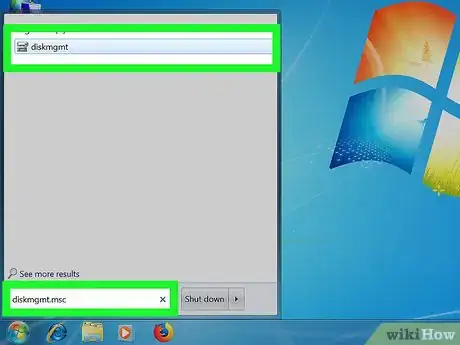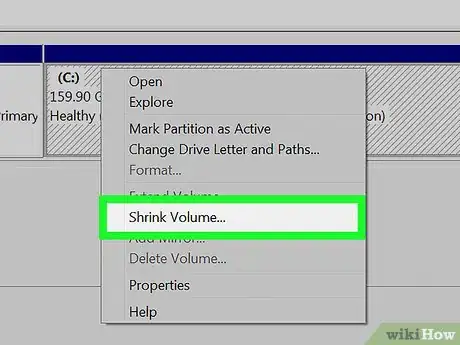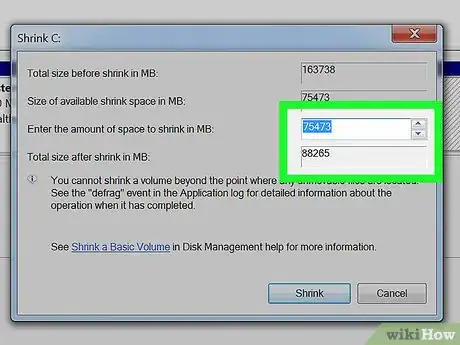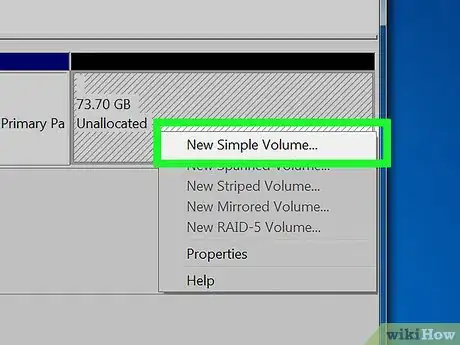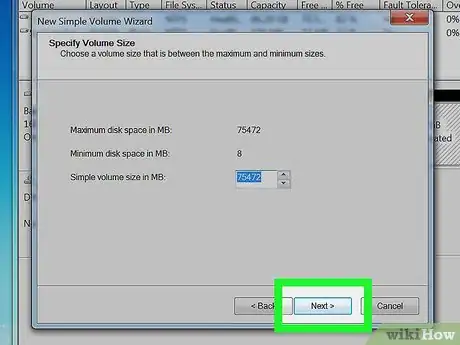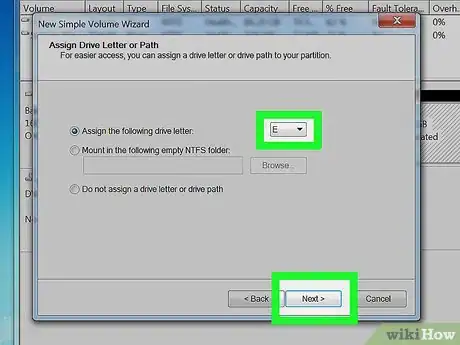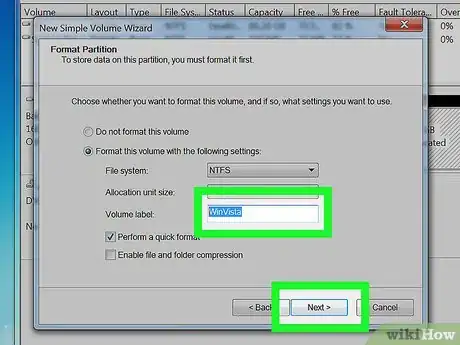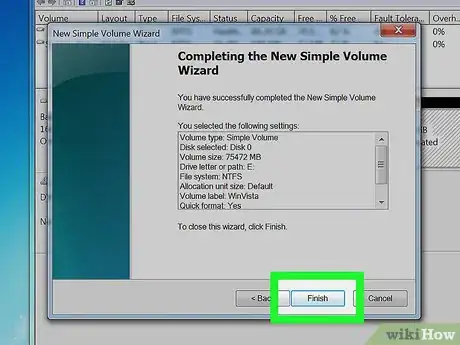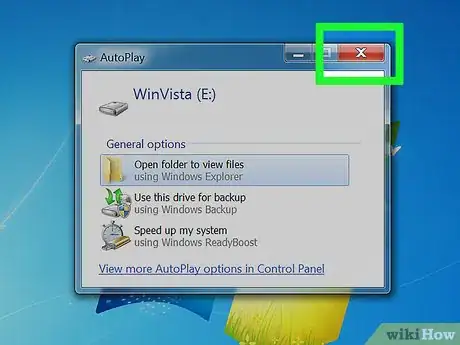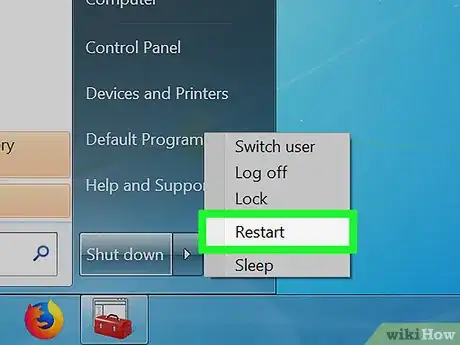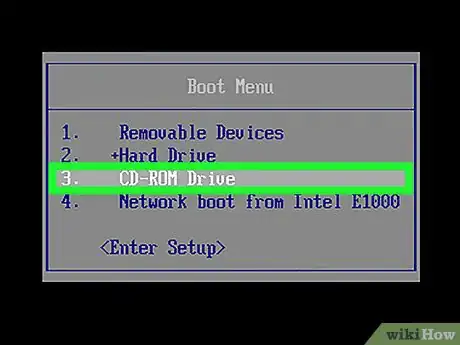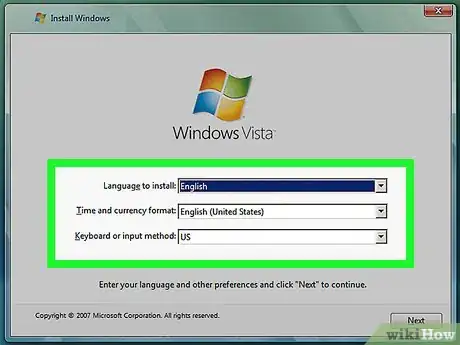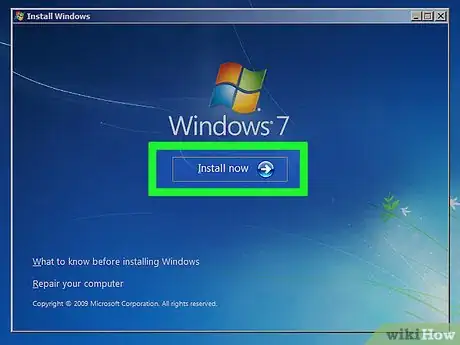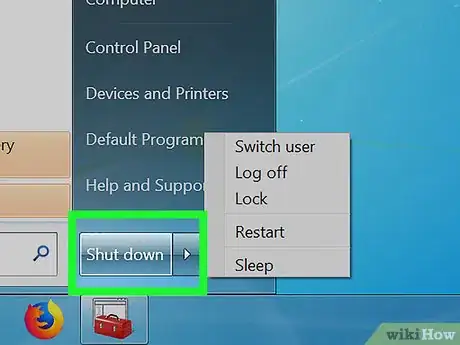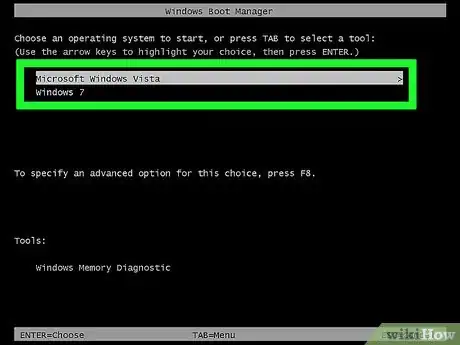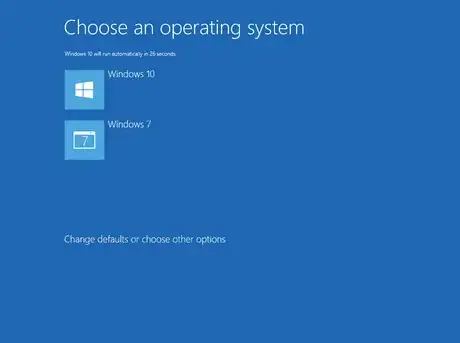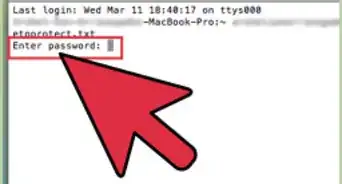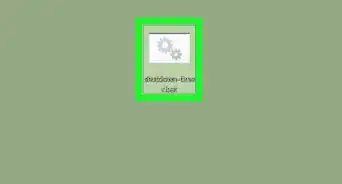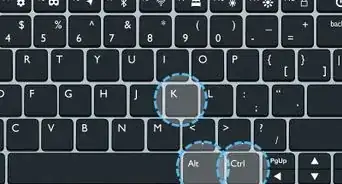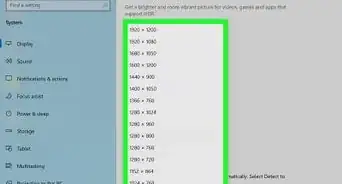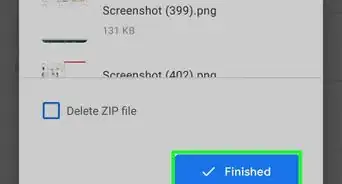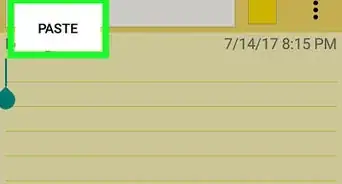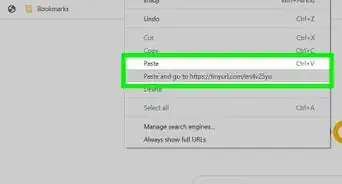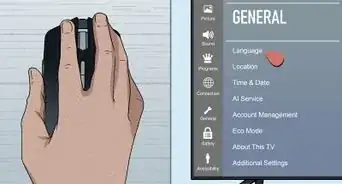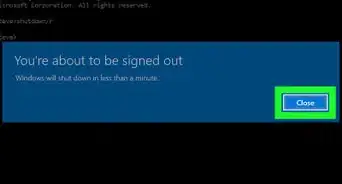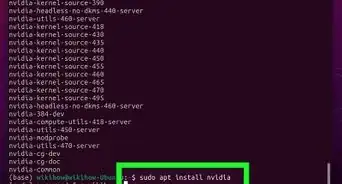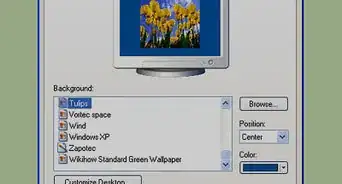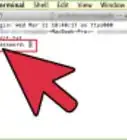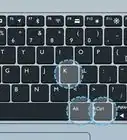X
wikiHow is a “wiki,” similar to Wikipedia, which means that many of our articles are co-written by multiple authors. To create this article, volunteer authors worked to edit and improve it over time.
This article has been viewed 24,811 times.
Learn more...
When you get a computer you like, you also want to get an operating system you like. But sometimes, having one operating system you like simply isn't enough. You may like two different operating systems so much that you can't choose between them. This tutorial will show you how to multi-boot between 2 different operating systems.
Steps
Part 1
Part 1 of 3:
Partitioning Your Hard Drive
-
1Install an operating system first to partition your drive. Alternatively, you can put your hard drive into another Windows computer and partition it using that. Open the Start menu and type diskmgmt.msc. Then press ↵ Enter.
-
2Wait for a window to appear like this. Assuming your primary hard drive is mapped C:\, right click it and click "Shrink Volume". Wait for another dialogue to open.Advertisement
-
3Enter the amount to shrink the hard drive by, in megabytes. (For example, if you had a terabyte hard drive and you wanted to make a 500GB partition later you would shrink your hard drive by 514400 MB). Once you have entered the amount to shrink buy press ↵ Enter.
-
4Make sure you see a new "block" that says "unallocated space" with the size of the space. Right click on this space and click "New Simple Volume". A window should then pop up that looks like this.
-
5Click Next.
-
6If you want to set a custom drive mapping then you can select it from the drop down list; otherwise click Next.
-
7Assign your partition a name if you want. For example, you could use Windows 10 Technical Preview. If you don't want to then make sure the checkbox Perform a quick format has a tick in it then click Next.
-
8Click Finish. Repeat the partitioning process once for each operating system you want to multi-boot. (If your hard drive has less that 500GB capacity, it's best to install 4 OSs maximum and if your hard drive is less than 100GB, it's best to avoid this process altogether.)
-
9Close the autoplay, if you see it. Now that that's done you might get an autoplay window that looks like this. If you do just close it; we don't need to do anything else to the partition now.
-
10Wrap up the partitioning process. We have now finished with all we need to do within Windows. Insert the boot media and power down your PC or if you partitioned the hard drive with another computer, turn it off, remove the hard drive, turn off the target computer and insert the partitioned hard drive into the target computer.
-
11Prepare to install your OSs. If you are installing via USB then insert it into the target machine and move onto the next step. If you are installing via a CD/DVD then power on your computer, insert the CD/DVD into the drive, then hold the power button for 6–8 seconds until the computer turns off.
Advertisement
Part 2
Part 2 of 3:
Installing the Operating Systems
-
1Install your first operating system. Take the normal approach to this, but when you are presented with the screen that asks you where you want to install it only select one. (You may see something called "Disk 0 Partition 1: System Reserved. Ignore this and install to one of the other partitions.)
-
2Install the second operating system. When your first operating system has installed, remove the first install source, insert the second one, power down your computer and boot from your boot media.
- When you install your second operating system make sure to install to a different partition to the one you installed the first OS on or the multi boot will not work.
-
3Remove the boot media and shut your computer down. If you don't remove your install source then the computer may try to boot from it again.
Advertisement
Part 3
Part 3 of 3:
Selecting the Operating System to Boot From
Community Q&A
-
QuestionCan I install Linux and Windows together?
 Zach ZachCommunity AnswerYes you can, you just need to have two partitions for each OS. For Instance, If you have 1TB Hard Drive and want to install Ubuntu. You Could give Windows 500GB and Ubuntu 498GB and 2GB for swap. You can do whatever you want.
Zach ZachCommunity AnswerYes you can, you just need to have two partitions for each OS. For Instance, If you have 1TB Hard Drive and want to install Ubuntu. You Could give Windows 500GB and Ubuntu 498GB and 2GB for swap. You can do whatever you want. -
QuestionWill it work for Windows XP and Windows 10 together?
 Community AnswerMost likely not as Windows XP computers are over 10 years old and Windows 10 most likely will not work on a computer made before 2011.
Community AnswerMost likely not as Windows XP computers are over 10 years old and Windows 10 most likely will not work on a computer made before 2011. -
QuestionCan I install windows on a M.2 drive and Linux on SSD and have the multiboot option?
 ArroganceTop AnswererYes. But if you want the GRUB menu to appear at every startup, you will have to set the SSD as the initial boot device. Otherwise, you will have to press a key to select the SSD as the boot device if you ever want to boot Linux.
ArroganceTop AnswererYes. But if you want the GRUB menu to appear at every startup, you will have to set the SSD as the initial boot device. Otherwise, you will have to press a key to select the SSD as the boot device if you ever want to boot Linux.
Advertisement
About This Article
Advertisement
